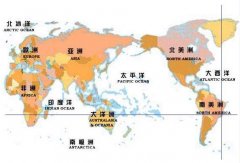A hermit in the Brazilian Santos coffee kingdom.
Origin: Brazil
Grade: good
Particles: more plump
Acidity: slight acid
Uniformity: stability
Baking: low to deep
Flavor: neutral beans, low acid, smooth and round taste
Brazil grows Arabica and Robusta coffee, but it is mainly Arabica coffee, mostly dried.
There are about 3.97 billion coffee trees in Brazil, and the number of people engaged in coffee production is two to three times that of Colombia. By the beginning of the 20th century, Brazil's coffee production was about 75% of the world's total output. Over a long period of time, coffee accounted for 2% of the country's total export revenue, thus making coffee a well-deserved kingdom. At present, Brazil is still the largest coffee producer and exporter in the world (the output accounts for more than 1ax 4 and the output accounts for more than 5%).
Brazilians are inextricably bound to coffee. They drink coffee just as Brazilian men can play football, and they can't do without coffee on any occasion. They drink coffee at every meal except black tea for breakfast. Especially when entertaining guests, Brazilians usually express their host's deep friendship by drinking coffee. They usually invite guests to drink espresso, drink cup after cup with very small cups.
Brazil Santos Coffee
The most famous in Brazil is the ancient bourbon Santos coffee grown on some estates in the Serrado district of the state of Milasquillas in southeastern Brazil. Sandoz's name comes from the port where coffee is shipped. There are a variety of criteria for classification and classification of Brazilian coffee beans. One of the most important criteria is that according to the port of export, Santos port exports have "Pindou Santos" and the first "bourbon Santos". Bourbon coffee is the most suitable for drinking when it is fresh and tender, because the older it is, the stronger the acidity. After the bourbon coffee tree produces some new beans, the coffee beans get bigger and lose some flavor, and this kind of coffee is called "Ping Dou Santos".
Brazilian Santos belongs to neutral beans. Coffee has moderate aroma, acid and alcohol, low bitterness and is famous for its smooth taste. It is mild, slightly sour, smooth and round in the mouth, smooth but has a good return to sweet taste. Its neutral flavor, refreshing and harmonious flavor is regarded as an indispensable role in blending coffee, and it is also very suitable for drinking as a single product. It can be said that Brazilian coffee has no outstanding advantages and no obvious shortcomings. In the eyes of many experts, the high-quality Brazilian Bourbon Santos is comparable to Blue Mountain Coffee, and its good flavor is talked about by people. If Blue Mountain is the king of coffee, then Bourbon Santos Coffee in Brazil is a hermit in the coffee kingdom. People who love Santos coffee usually regard it as an implicit and meaningful friend.
Important Notice :
前街咖啡 FrontStreet Coffee has moved to new addredd:
FrontStreet Coffee Address: 315,Donghua East Road,GuangZhou
Tel:020 38364473
- Prev

Fine coffee learning golden cup theory golden cup
For coffee, 50 years ago, the same thing applies, or classic, golden cup theory golden cup or e61, are like this. The core of the golden cup theory is the optimal extraction degree and the optimal coffee concentration. Theoretical and empirical data are necessary for coffee making; otherwise, each cup of coffee is filled with countless variables,
- Next

Boutique Coffee introduces Brazilian bourbon Santos Coffee
Flavor and taste characteristics: a variety of flavors, low acidity, taste lubrication. Brazil is a rich and beautiful land, with the Atlantic Ocean in the east, more than 7400 meters of coastline and the famous Andes in the west. Brazil is also the world's largest coffee producer, known as the coffee country. Brazil is vividly compared to the giant and monarch of the coffee world. Brazilian coffee was made in 1729
Related
- Beginners will see the "Coffee pull flower" guide!
- What is the difference between ice blog purified milk and ordinary milk coffee?
- Why is the Philippines the largest producer of crops in Liberia?
- For coffee extraction, should the fine powder be retained?
- How does extracted espresso fill pressed powder? How much strength does it take to press the powder?
- How to make jasmine cold extract coffee? Is the jasmine + latte good?
- Will this little toy really make the coffee taste better? How does Lily Drip affect coffee extraction?
- Will the action of slapping the filter cup also affect coffee extraction?
- What's the difference between powder-to-water ratio and powder-to-liquid ratio?
- What is the Ethiopian local species? What does it have to do with Heirloom native species?

